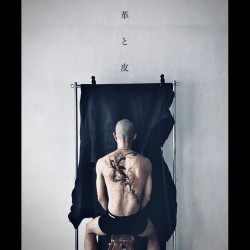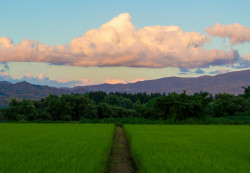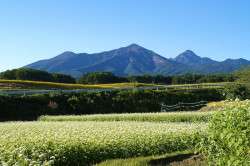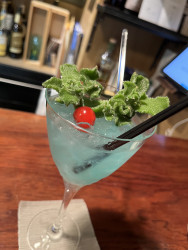
June 3, 2010
Sex and the Metropolis
Meet the Tokyo counterparts of the Sex and the City cast
By Metropolis
Originally published on metropolis.co.jp on June 2010
Few Western TV shows have caused as much frisson in Japan as Sex and the City. In a country already obsessed with brand-name goods and the politics of dating, the saga of Carrie Bradshaw and co. attracted a massive following with its late-night runs on NHK. As Sex and the City 2 hits screens this weekend, we spoke with a quartet of locals to get their take on careers, relationships—and whether the show remains relevant to the 21st-century working woman.

Portraits by Benjamin Park Morin
The Carrie
Ulara Nakagawa, writer and editor of The Diplomat magazine
Hometown: Vancouver
Tell me about your background.
I was born in Vancouver and attended school from preschool through university there. I majored in sociology at the University of British Columbia.
What has your career been like?
Since I was a teenager, I’ve had a wide range of jobs. But someone once told me that to be a writer is to have lots of experiences; so that was always my guide in taking anything on. As for more recent jobs, I’ve worked as an independent copywriter and copyeditor, a freelance journalist and as an editor of a couple of publications and projects. I am currently the associate editor of The Diplomat, an online magazine for breaking news, quality analysis and key information for the Asia-Pacific region.
In your view, how has being a woman affected your career?
Very little, if at all. It was probably harder to have a serving job as a woman back in Canada (where looks and flirting do come into play) than it is to be a writer or editor. That’s one great thing about this type of career—there is little room for discrimination based on appearance, gender, ethnicity or, oftentimes, even educational background. Your work ethic and ability tend to speak for themselves.

©2010 New Line Productions, Inc. and Home Box Office, Inc.
Based on your own experience, how does being a working woman at the current time in Japan compare to the situation for women overseas?
I guess it really depends on what you mean by “overseas.” Compared to most working women in developing countries, I’d imagine women in Japan have it far better in terms of wages, working conditions, etc. However, if you are to compare Japanese working women to those in the West, I think that there is still much to be improved upon here. Take, for example, the women-only train cars. I find it degrading—that we have to get into those specific cars to feel comfortable or safe. Also, I try not to be biased, but I find many of my female friends in the West much more career-focused and independent, whereas here there still seems to be a stronger pressure or desire to get married and have a family.
How has your experience as a Japanese Canadian shaped your work/life experience in both countries?
I’d say that it made me stronger and more adaptable and open-minded. I’ve learned to cope with being different on more levels than one—first in Canada, when oftentimes as a child and teenager, I felt out of place for being a visible minority, then in Japan for being out of place in terms of etiquette, social customs—basically fitting into society as a Japanese woman. But overall I feel constantly grateful for having the opportunity to experience two very different cultures in terms of work and life—it’s been a wonderful ride so far, and I love having two places I can truly call home!
Do you think the lead characters in Sex and the City are positive role models for working women? What other role models do you have?
The characters from Sex and the City were definitely my heroes throughout some of my 20s. However, I have a harder time feeling the same way towards the characters these days. I like the overall idea that loving yourself and being independent is paramount, but I think in our 30s and 40s, we should start looking beyond men and new outfits to find greater satisfaction and happiness in our lives and careers. So, my female role models now are the unsung heroes around the world that make a difference for other beings without fame or fortune… or high-priced Manolos! Then there is the amazing Jane Goodall, who is probably my greatest living hero.
The women in SATC have such melodramatic love lives. Is that true for you, or for your friends or Japanese women in general?
Yes, I have had a dating/relationship past not too unlike the women from Sex and the City—which is probably why my friends and I were so obsessed with the show! And some of them still lead pretty exciting dating lives. I’m currently in a great relationship, and have been out of the dating scene for over a year. Overall, I’d say that whether in New York or Tokyo, or in any big city, you’re going to have a pretty exciting love life if you are passionate, put yourself out there and have great girlfriends to share your dramas with!
What’s your favorite episode of SATC and which character do you identify with most?
My favorite episode of SATC is probably the last of season 6, when there is a montage of all of the women at the end of the episode with a voice-over that still makes me teary. It felt nice to see how all four women had found a sense of happiness and fulfillment—even if temporarily. I’d say at different stages of my life, I’ve found I connect the most with a certain character. That’s what made the show so good—all the characters were different, but relatable.
What Tokyo hotspots can you recommend?
I’d recommend Lush and the Body Shop for their great corporate philosophies and high-quality products to back them up—there are many shops in Tokyo. As for a place that never disappoints me—that is perfect for any independent art-loving city girl to hit solo—the National Art Center Tokyo in Roppongi. Also, Kinokuniya bookstore in Shinjuku is immense and fantastic and you can spend hours there. As for great places to eat, I’d have to say my personal favorite restaurant is Deva Deva (www.devadevacafe.com), a modern, clean and delicious vegan café and restaurant in the wonderful Kichijoji area.







